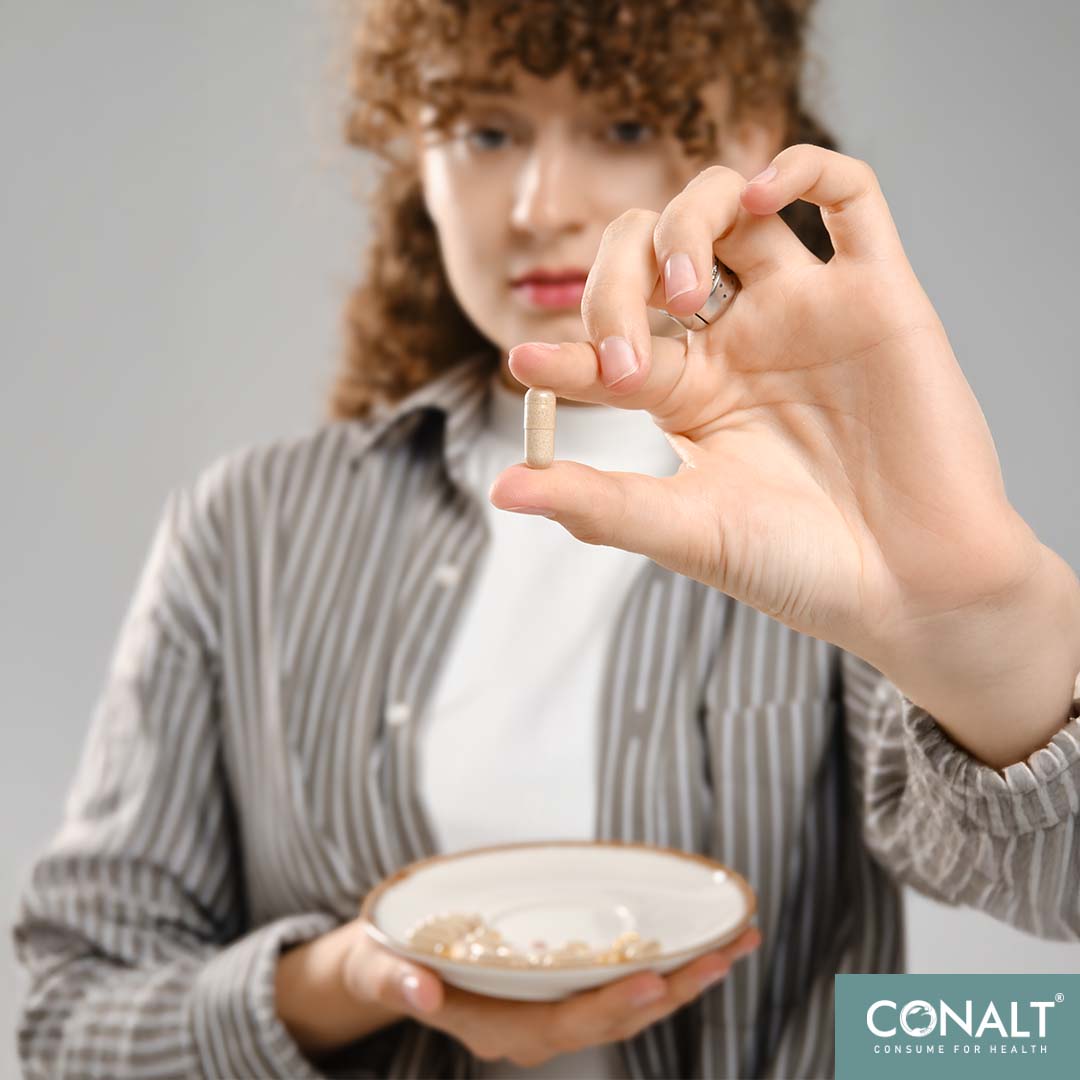What Are the Right Nutritional Supplements for the Skin?

Skin health is of great importance both aesthetically and medically. Our skin is the first line of defense protecting our body from external factors. It not only provides protection against ultraviolet rays, chemicals, free radicals, and environmental pollution but is also closely linked to the immune system. A healthy skin barrier is an indicator of overall bodily health. In this context, proper nutrition and the use of the right supplements play a critical role in skin regeneration, moisture balance, elasticity, and overall health.
Recent studies have revealed the positive effects of nutritional supplements such as probiotics, prebiotics, vitamins, minerals, and essential fatty acids on skin health. In particular, the connection between gut health and the skin has become an increasingly studied topic among scientists. In this article, we will examine essential nutritional supplements that help maintain healthy and youthful skin.
What Are Probiotics and Prebiotics?
The gut microbiota is crucial for both general and skin health. Probiotics are live microorganisms that support the balance of beneficial bacteria in the gut. Prebiotics, on the other hand, are indigestible fibers that promote the growth of these beneficial bacteria. Research has shown that maintaining a balanced gut flora can reduce the risk of skin conditions such as eczema, acne, and atopic dermatitis.
Effects of Probiotics on the Skin
The most common effects of probiotics on the skin include:
- Treatment of atopic dermatitis and eczema: Lactobacillus and Bifidobacterium strains can help alleviate symptoms of atopic dermatitis.
- Prevention of acne formation: By regulating gut flora, probiotics can reduce inflammation-causing bacteria on the skin.
- Strengthening the immune system: They support the skin’s barrier functions and provide protection against infections.
Effects of Prebiotics on the Skin
The most common effects of prebiotics on the skin include:
- Strengthening the skin barrier: They support ceramide and lipid production, preventing skin dryness.
- Antioxidant effects: They protect against free radicals.
- Supporting gut flora: By regulating the digestive system, they indirectly improve skin health.
Probiotics are found in yogurt, kefir, and fermented foods, while prebiotics are naturally present in foods such as onions, garlic, bananas, and asparagus. Their use as supplements can be particularly beneficial for individuals with gut problems.
Vitamins That Are Beneficial for the Skin
Vitamins are essential for maintaining healthy skin. Each vitamin has different functions for the skin.
Vitamin A (Retinoids and Beta-Carotene)
- Supports cell regeneration and reduces wrinkles.
- Plays an important role in acne treatment.
- Retinol derivatives are widely used in anti-aging skincare products.
- Found in foods such as carrots, spinach, sweet potatoes, and fish oil.
Vitamin C (Ascorbic Acid)
- Increases collagen production, tightening the skin.
- As a powerful antioxidant, it protects the skin from free radical damage.
- Reduces damage caused by UV rays.
- Found in citrus fruits, bell peppers, kiwis, and strawberries.
Vitamin E (Tocopherol)
- Protects the skin against free radicals, delaying aging effects.
- Enhances skin moisture, preventing dryness and irritation.
- Found in almonds, sunflower seeds, avocados, and leafy green vegetables.
Vitamin D
- Supports skin barrier function and prevents infections.
- Can reduce skin inflammation.
- Synthesized from sunlight and also found in salmon, milk, and eggs.
Vitamin B3 (Niacinamide)
- Balances oil production in the skin and prevents acne formation.
- Reduces moisture loss, making the skin smoother.
- Helps even out skin tone.
- Found in liver, turkey, almonds, and whole grains.
Minerals That Are Beneficial for the Skin
Minerals are essential for maintaining skin health and ensuring its optimal function.
Zinc
- Plays a significant role in acne treatment due to its anti-inflammatory properties.
- Accelerates wound healing.
- Found in seafood, red meat, pumpkin seeds, and walnuts.
Selenium
- As a powerful antioxidant, it protects skin cells against UV rays.
- Increases skin elasticity and prevents premature aging.
- Found in Brazil nuts, tuna, and eggs.
Copper
- Plays a role in collagen and elastin production.
- Regulates skin pigmentation.
- Found in shellfish, sesame seeds, cocoa, and legumes.
The Relationship Between Skin and Omega-3 Fatty Acids
Omega-3 fatty acids are essential fatty acids that help maintain skin moisture balance and reduce inflammation.
- Nourishes the skin and maintains moisture balance.
- Can prevent inflammatory skin diseases such as eczema and psoriasis.
- Plays a protective role against sun damage.
- Found abundantly in salmon, walnuts, flaxseeds, and chia seeds.
Omega-3 supplements can make the skin more resistant to dryness and irritation.
Conclusion
Skin health cannot be maintained solely through external skincare; proper nutritional supplements are necessary for healthy skin from the inside out. While probiotics and prebiotics help maintain the balance between gut health and the skin, vitamins and minerals support the fundamental functions of the skin. Omega-3 fatty acids, on the other hand, moisturize the skin and prevent inflammation.
For brighter, healthier, and younger-looking skin, it is essential to maintain a balanced diet and use the right nutritional supplements when needed. Regular consumption of foods that support the gut-skin connection will enhance both overall health and skin quality.
Reference
Bali, V., Panesar, P. S., Bera, M. B., & Kennedy, J. F. (2016). Bacteriocins: recent trends and potential applications. Critical Reviews in Food Science and Nutrition, 56(5), 817–834.
Gao T, Li Y, Wang X, Tao R, Ren F. Bifidobacterium longum 68S mediated gut-skin axis homeostasis improved skin barrier damage in aging mice. Phytomedicine. 2023 Nov;120:155051.










